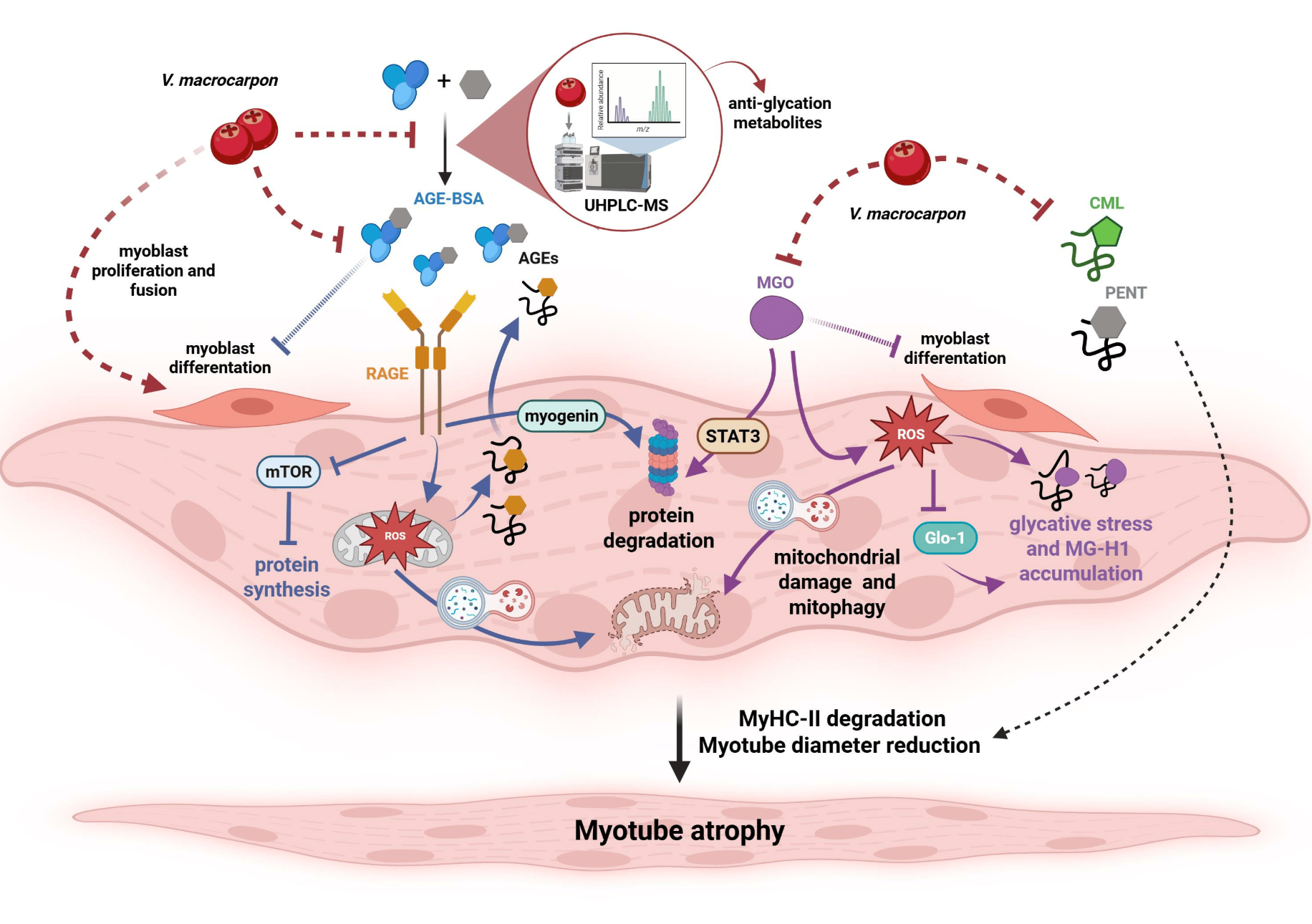
14 Ago New Publication from the WESTERNAGE Project
We are pleased to announce the publication of a new research article stemming from the PRIN WesternAGE project:
Title: Diet-Derived Advanced Glycation End-Products (AGEs) Induce Muscle Wasting In Vitro, and a Standardized Vaccinium macrocarpon Extract Restrains AGE Formation and AGE-Dependent C2C12 Myotube Atrophy
Authors: Dr. Martina Paiella, Dr. Giulia Gentili (Postdoctoral Fellows, Anatomy Section), and Prof. Francesca Riuzzi (Associate Professor and Faculty Board member of the PhD Program in Medicine and Experimental Therapies).
Background
Skeletal muscle accounts for nearly 45–50% of total human body mass and plays a central role in movement, respiration, energy metabolism, and nutrient storage. Disruption of muscle homeostasis can have serious metabolic consequences, contributing to noncommunicable chronic diseases (NCDs) such as diabetes, obesity, and sarcopenia.
In recent decades, the widespread adoption of the Western diet—rich in saturated fats, sugars, and ultra-processed foods—has been linked to increased inflammation, oxidative stress, and metabolic dysfunction. One of the key molecular players in this process are diet-derived Advanced Glycation End-Products (dAGEs), compounds formed during food processing (e.g., grilling, frying) that can accumulate in tissues and impair their function.
Key Findings
For the first time, this study demonstrates in vitro that:
Diet-derived AGEs directly cause myotube atrophy by activating catabolic pathways and impairing mitochondrial function.
These detrimental effects occur through mechanisms distinct from those triggered by endogenous AGEs.
Certain phytotherapeutic extracts—specifically a standardized cranberry (Vaccinium macrocarpon) extract—can inhibit AGE formation and protect muscle cells from AGE-induced damage.
Significance for WesternAGE
These findings strengthen the scientific basis of the WesternAGE project by:
Providing clear mechanistic evidence of how dAGEs contribute to muscle wasting, a major risk factor in aging and chronic diseases.
Highlighting the potential of dietary interventions and natural compounds in mitigating AGE-related muscle damage.
📄 The full article is available pdf and here (link to journal)


